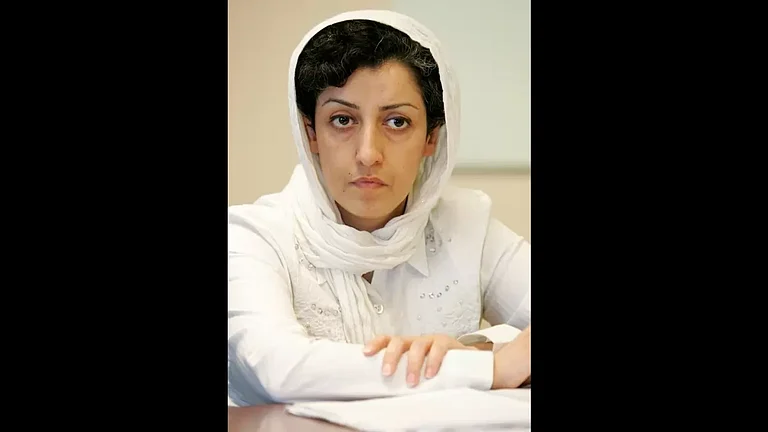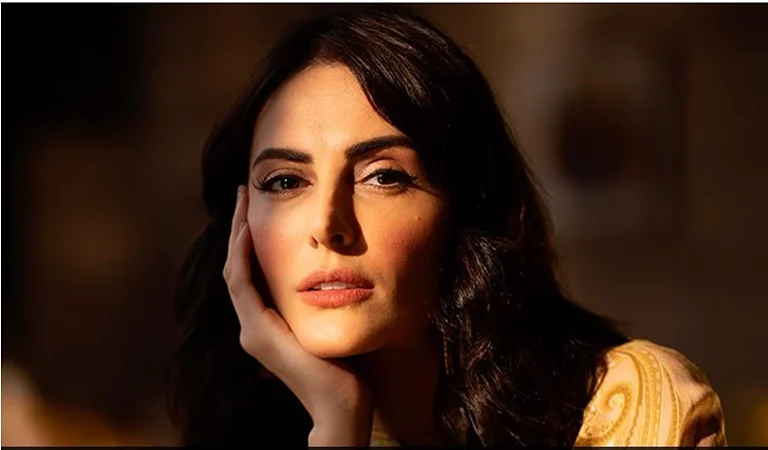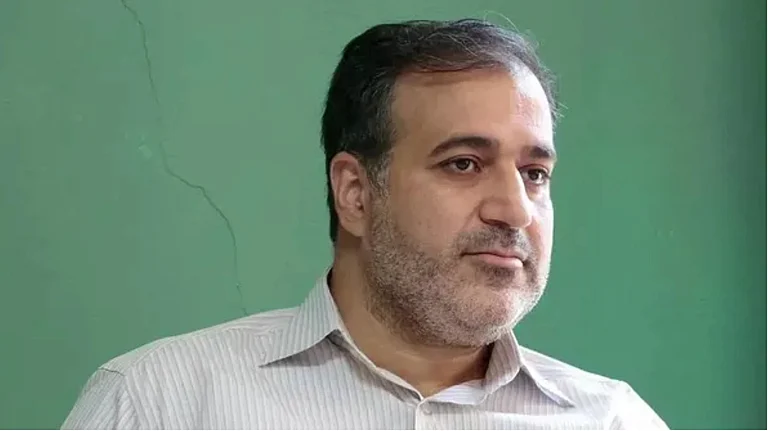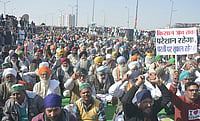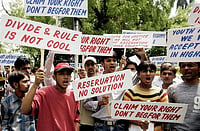Iranian singer Shervin Hajipour, who risks being imprisoned over a song on Iranian women-led protests, won a Grammy award on Monday.
Hajipour won the Best Song For Social Change award at the 2023 Grammy Awards. He won the award for his song Baraye, which was listened by over 40 million people in less than two days, according to the Grammy website.
Hajipour's song Baraye has become the unofficial anthem of the Iranian women-led protests following the death of 22-year-old Mahsa Amini over the country's hijab rule last year.
US First Lady Jill Biden announced the Hajipour as the winner of the Grammy Award. Announcing the award, she called the song "a powerful and poetic call for freedom and women's right".
She said, "This song became the anthem of Mahsa Amini protests, a powerful and poetic call for women's rights...Shervin was arrested but this song continues to resonate around the world with its powerful theme — women, life, freedom."
Following the First Laday's announcement, an online video showed Hajipour in a darkened room, wiping tears.
The meaning of Shervin Hajipour's song
Hajipour's song Baraye —For in English— begins with: “For dancing in the streets”, “for the fear we feel when we kiss.” The lyrics list reasons young Iranians have posted on Twitter for why they had protested against Iran's ruling theocracy.
The song ends with the widely chanted slogan that has become synonymous with the protests since the September death of Iranian-Kurdish woman Masha Amini: “For women, life, freedom”.
The slogan —women, life, freedom— is the English translation of Persian slogan jin-jiyan-azadi which symbolises the theme of women's movement in Iran.
“These protests intertwine with the broader demand of ‘freedom’ in the sense of individual political and cultural rights and openness, which was also a key promise of the Islamic Revolution that overthrew the Pehlavi monarchy. The popularity of slogan of jin-jiyan-azadi [women-life-freedom] would suggest that the current round of protests are better understood within the notion of civil rights movement,” said Iranian affairs expert Dr Deepika Saraswat to Outlook.
Arrest, persecution of Shervin Hajipour
Released on his Instagram page, Hajipour's song quickly went viral. He was then was arrested and held for several days before being released on bail in October.
Hajipur's, 25, faces charges of “propaganda against the regime” and “instigating the violence,” according to Human Rights Activists in Iran, a group that's been monitoring the monthslong protests. Hajipour is also banned from leaving Iran.
There was no immediate reaction in Iranian state media or from government officials to Hajipour's win.
Iran's protests and state crackdown
Iran has been rocked with intense women-led protests since September 2022 when 22-year-old Mahsa Amini died in Iran's morality police's custody.
Amini was detained for alleged violation of Iran's hijab rules. She was out with her brother at the time of her detention.
Women are by law required to wear a hijab —Islamic head covering— in Iran. The state-enforced dress codes also prohibit women from wearing form-fitting and revealing clothes. The mingling of opposite genders in the public space is regulated by the state.
Such laws came into force in Iran after the Islamic Revolution of 1979 when the Islamic clergy overthrew the liberal, pro-West monarchy. The Islamic clergy has since run Iran with a strict interpretation of Islamic law called Sharia.
Since Amini's death, Iran has been rocked with protests in which women have often taken off and torn their hijabs, burnt hijabs, and cut their hair in public in defiance of the Iranian state. The Iranian state has dealt with the protests harshly and at least 527 have been killed by state security personnel.
Hajipour is among over 19,600 people arrested amid the demonstrations, according to Human Rights Activists in Iran.
On Sunday, Iran's Supreme Leader Ayatollah Ali Khamenei reportedly ordered an amnesty or reduction in prison sentences for “tens of thousands” of people detained amid the protests, acknowledging for the first time the scale of the crackdown.
Defiance by Iranian public figures
A number of public figures in Iran, ranging from actors to sportswomen, have defied the Iranian state by taking off their hijabs and expressing solidarity with the protesters.
In December, Iranian chess players Sara Khadem and Atousa Pourkashiyan competened in an international tournament in Kazakhstan without hijab. Sara had to move to Spain after she and her family received threats.
In December, top Iranian actress Taraneh Alidoosti was detained for support to Iran protests. She was released last month, according to BBC.
The BBC reported, "She had posted a picture on social media without a headscarf and condemned the first execution of a protester. Many Iranian actors, musicians and other celebrities have publicly backed the protests against the clerical establishment."
In October, Iranian competitive climber Elnaz Rekabi competed without a hijab in South Korea. NPR reported she received “a hero’s welcome” upon her return to Iran.
In November, an Iranian basketball team shared a photo without hijab with a caption “women, life, freedom”.
In November, Iranian skater Niloufar Mardani received an award in Turkey without her hijab. The Iranian government condemned her after her photograph appeared in the public domain.
(With AP inputs)







